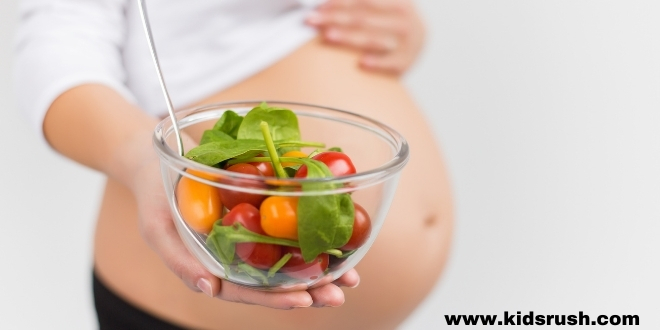How to treat cystitis in pregnancy with home remedies:
Whenever cystitis is assumed in pregnancy, a doctor should be consulted. Some natural remedies can help stop it or contribute to treatment, although this is not a replacement for the antibiotic.
Cystitis in pregnancy is very common since the anatomical characteristics of a pregnant woman support this urinary infection. It is estimated that between 5 and 10% of pregnant women suffer from it.
This is because the enlargement of the uterus leads to the bladder being compressed. Thus, fluid retention is favored and, with it, the growth of pathogens. Likewise, if the presence of glucose in the urine is concomitantly increased, the bacteria grow with more substrate.
Read Also: Hypoglycemia or low sugar levels in pregnancy
Cystitis in pregnancy
What are the signs and symptoms of cystitis?
Cystitis in pregnancy has no different symptoms than the disease does in a woman who is not pregnant. The most characteristic manifestation is a burning sensation when urinating that those affected describe as burning, pain, irritation, or discomfort.
It is also very common that there is a symptom known as frequency, which consists of urinating very frequently, but in small amounts. Only in some cases occurs polyuria, which is an increase in the volume of urine.
Likewise, it is common for cystitis in pregnancy to cause nocturia or the urgent need to urinate after having gone to sleep. Many of the women with this problem also indicate that they want to continue urinating, immediately after they have done it, but without success.
Read Also: How to use a pregnancy test
Home remedies for cystitis in pregnancy
Cystitis during pregnancy should be treated as soon as it is detected, as all UTIs can be dangerous to the fetus. In addition to going to the doctor and following his instructions, several home remedies can be a good help.
We recommend you to read another article on kidsrush.com which is about How to prepare for a healthy pregnancy |7 Tips|.
Increase fluid intake

A study published in JAMA Internal Medicine and prepared in the United States indicates that increasing daily fluid consumption can reduce the risk of recurrent cystitis by up to 50%. It is advisable to drink between two and three liters of water a day to accelerate the release of toxins.
Hydration is a relevant aspect always, but especially during the pregnancy months. If the woman lives in hot climates or goes through a large part of pregnancy in summer, it will be essential that she be attentive to water consumption.
Urinate frequently
Keeping your kidneys active and emptying your bladder regularly helps prevent cystitis in pregnancy. This is because, if residual urine accumulates due to not emptying, the risk of infection due to bacterial contamination increases.
In no case is it convenient to retain urine. An extreme form of this condition is acute pregnancy retention, a situation in which the fluid outlet to the outside is blocked.
Take probiotics
Numerous studies have proven that probiotics containing lactobacilli are effective in repopulating the vaginal flora. Thanks to this, the microbiota is stabilized and pathogens such as Escherichia coli, Proteus mirabilis, Staphylococcus saprophytic, and Klebsiella pneumonia are prevented from developing.
This prevents the appearance of cystitis in pregnancy. The most appropriate thing is to associate them with the initial treatment with antibiotics and then continue taking them regularly to avoid relapses.
Drink cranberry juice

Several types of research have indicated that blueberries possess astringent and antiseptic properties. They are a suitable option to prevent cystitis in pregnancy, as they prevent bacteria from clinging to the walls of the urinary tract.
It is best to blend half a cup of blueberries in one of water and drink this juice in the morning for 10 days. Today it is possible to find even commercial formulations on the market.
We recommend you to read another article which is about Drinking alcohol during pregnancy.
Increase the intake of vitamin C
There are not enough studies on the effectiveness of vitamin C in preventing or treating UTIs. However, some authors point out that this substance contributes to acidifying the urine and this, in turn, would help people who have this problem.
Consumption in a healthy adult should be between 75 and 90 milligrams per day. In those with cystitis, the indication is greater, but it is the doctor who must determine it.
How to prevent cystitis during pregnancy
The best way to prevent cystitis in pregnancy is by keeping the kidneys active, eating a proper diet, and applying the correct hygiene measures. It will always be preferable to avoid clinical pictures than to consume antibiotics.
Hygienic measures
It is important to clean the genital area properly after urinating. It should be done from front to back to prevent fecal matter from entering the vagina.
Likewise, it is advisable to wear cotton underwear that is not very tight. It is convenient to urinate before and after having sex, too.
Food and drink

Drinking enough water throughout the day and emptying your bladder whenever you feel like urinating are simple preventive measures. The goal is to keep the kidneys active and avoid residual urine.
On the other hand, avoiding the consumption of beverages rich in sugar and alcoholic will reduce the factors that favor bacterial colonization. Likewise, the habitual intake of spicy, fatty, or fried foods is not advisable. Instead, increase the presence of vegetables rich in water and red fruits, such as blueberries.
Read Also: How to diet in pregnancy
Control the evolution of cystitis in pregnancy
If the pain or burning during urination begins to dissipate after an infection, it is considered that there is an improvement. If, on the other hand, the discomfort increases, the frequency of urination increases, and the urine have a strange appearance. It means that the condition has worsened. The doctor should be notified of this as soon as possible.
